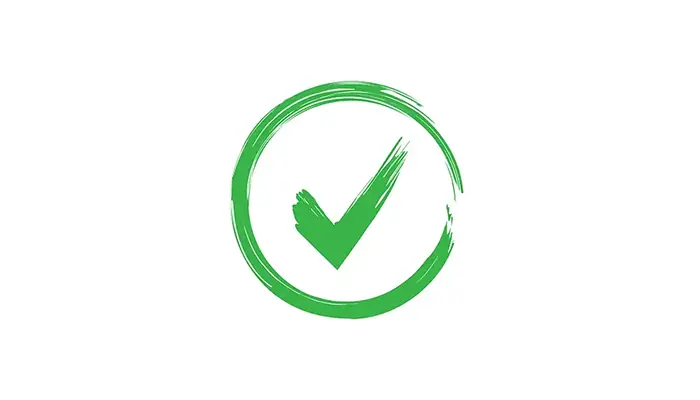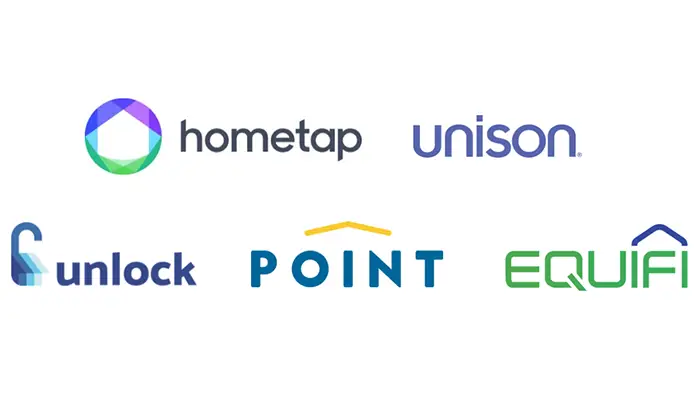Home equity investments enable you to access home equity with no monthly payments or interest -- unlike traditional home loans. However, you'll repay the full amount plus an equity stake in your profits when you sell your house, which could be expensive.
Many people consider homeownership to be a wealth-building journey, and there are various ways you can make the most of your home's value. It's important to know all of your options, including "home equity sharing" – where you can unlock the value of your home without selling it or taking on additional debt.
Unlike a home equity line of credit (HELOC), a cash out refinance, or a home equity loan, home equity sharing is a unique financial strategy that allows you to access the value locked in your home immediately, with no monthly interest or repayments.
Whether you want to pay off debt, renovate your home, invest in real estate, or start a business, read on to see the benefits and drawbacks of home equity sharing, and how they compare to more traditional home equity loan options.
Jump to the Benefits of Home Equity Sharing, Downsides of Home Equity Sharing, and top companies to consider for the full review.
Pros & Cons
Pros
- Provides immediate access to cash and financial flexibility without taking on new debt
- A good alternative to traditional home loans if you are looking to avoid making monthly payments or paying interest
- Lower qualification requirements make it a good option to consider for those with credit scores below 620
Cons
- Potential to reduce future value gains from your eventual home sale
- You will need to repay the full amount due all at once
- Can complicate future home equity borrowing plans
How Home Equity Investments Work
The best way to look at home equity investments is to see them as a partnership between you and a home equity investment company.
They are willing to give you a portion of your home's equity on the assumption that your home will continue to appreciate over time. Then, when it comes time to sell your home, they will be due the amount of cash they fronted you, plus a certain percentage of the home's appreciation.
What makes this product unique is that home equity investment companies only make money when you do. If your property loses value, you do not owe them more money than the original amount they lent to you. Of course, if your property appreciates considerably, they will make more money and you will be left with less of a profit.
In other words, you're effectively trading a portion of the equity in your home for a lump sum cash payment. Unlike a traditional home equity loan, you're not required to make monthly payments or pay interest rates.
Instead, you're trading a share in the future value of your home for cash right now. The investment company will recoup its original investment plus its share of future value when you sell your home or at the end of a specified period, depending on the terms of your contract.
It's worth emphasizing that home equity investments are not loans. Many people think of them that way, but there is a big difference. Not making payments or accruing interest showcases a key difference between these investments and standard home equity loans.
Home Equity Sharing Agreements
A home equity sharing agreement is offered by home equity sharing companies can be straightforward in theory but tend to be robust legal documents. Careful consideration is key.
The agreement will lay out all the terms of the investment and detail how much equity you'll get in exchange for the company's ownership stake in your home. You'll also be able to see how the future profit from your home's sale will be shared.
Here's a basic example of how an investment might be structured:
Imagine you're a homeowner in California and have a property valued at $500,000 with $200,000 in equity. You might consider contacting a home equity investment company if you need $100,000 in cash. They can help you access the funds you need in exchange for shared equity.
The company might propose giving you $100,000 for a 25% stake in your home's appreciation beyond $500,000.
That means you get the $100,000 you need now, and when you sell your home later, the company will get its original investment back plus the pre-defined 25% share of any appreciation (25% of the value beyond $500,000).
How the Process Works
There are several key steps that you would take in order to complete a Home Equity Investment transaction. In simple terms, this is what it looks like:
- You first select a home equity investor to go into business with. Hometap, Unison, Unlock, Point, and EquiFi are five of the top home equity investment companies to consider.
- Next, this company would pre-qualify you and provide you with an estimate to determine how much cash you could receive in exchange for the equity stake in the future value of your home
- You complete a home appraisal from an independent appraiser to determine your home's fair market value
- Once you successfully complete the application process, a full contract is sent to you for review. It is of the highest importance that you take as much time as needed to fully understand the terms and conditions of the agreement. Specifically, focus on understanding how much money you are taking out, how much of a stake you are giving up in exchange for this money, and any other rules or expectations that come with the partnership.
- Once you are ready to sign the contract, a notary is required to observe and record the signatures. (This is typically only done in person; there are no electronic contract options.)
- The company then wires you your funds, and there is nothing further for you to do until either the agreement term ends (often ten years but sometimes up to 30 years), or you decide to sell your property
- At the end of the agreement term, or when you decide to sell your property, you repay the equity value the company gave you plus their share of the property's appreciation
Benefits of Home Equity Investments

There are some great benefits associated with home equity investments. Their immediate access to lump sum cash is a big draw for many homeowners. They also provide financial flexibility without taking on new debt. They are suitable for homeowners with diverse credit profiles, so they can work for nearly anyone with equity in their home. Here are some of the main advantages you'll want to consider.
1) Immediate Access to a Lump Sum Cash Payment
Getting fast access to a lump sum of cash is one of the biggest reasons homeowners choose home equity investment companies. You can use the money for many financial needs, including another investment, debt repayment, home renovations, education, or even starting a business. Additionally, the amount of cash you can get from home equity investments runs up to $600,000, depending on how much equity you have in your home, the policies of the investor, and how much future value you're willing to trade.
The lump sum payment is determined by the investor primarily based on your location, current equity, appraisal value, and their risk assessment.
2) Financial Flexibility Without Taking on New Debt
Having financial flexibility without needing to take on any new debt is another significant advantage of home equity investments. Unlike traditional loans and lines of credit, these investments provide you with upfront funds without the burden of additional monthly payments or accumulating new debt.
This flexibility can increase your financial stability by allowing you to use the funds for retirement income, unexpected expenses, or other decisions, and you won't have an additional payment to worry about.
3) Usefulness for Various Credit Profiles
Homeowners don't all have perfect credit scores or profiles, and home equity investment companies rely less on that measurement. Instead, they provide an avenue for funding without so much emphasis on credit scores, making them a unique and more inclusive option. This is a big advantage over personal loans or HELOCs, which often require a high credit score that not all homeowners have. Even if your credit score isn't perfect, you can tap into your home's equity through an equity investment.
However, it's always wise to look at various lender options before making a decision since some lenders have different credit requirements than others.
Downsides of Home Equity Sharing

As with any financial strategy, home equity investments carry downsides. These include the risk of reduced future value gains and potential complications for existing mortgage holders. Understanding what that means for you before choosing to work with any home equity investment company is important.
Here are highlights of what to think about:
1) The Risk of Reduced Future Gains
The likelihood of decreased future value gains is one of the largest potential downsides of home equity investments. When you agree to home equity sharing, you essentially give up a portion of your home's future value in exchange for a lump sum of cash right now.
If your home's value increases significantly, you could give a significant portion of that gain to the investment company instead of putting it in your pocket when you sell.
This means that even though you receive a lump sum of cash upfront, you could lose out in the future. You could miss out on considerable equity appreciation if your property's value increases substantially. Because of that, it's essential to consider the potential impact on future value gains and weigh this risk against the immediate financial benefit of getting a lump sum cash payment now. It's also wise to compare this potential cost against the total cost of borrowing from traditional options like home equity loans and HELOCs.
2) Potential Limitations on Subsequent Home Equity Borrowing
Active mortgage holders should consider the potential complications of partnering with home equity investment companies. As part of the investment process, the home equity investor will typically place a lien on the property to record their stake. The lien may make it harder or slower to get a traditional home equity loan in the future. The lien may also limit the amount you can borrow against your home.
Understanding the Payback Process
The payback procedure for home equity investments normally involves an appraisal and settling the investment when selling your home or when the agreement matures. Every company and deal can be different, so make sure you fully understand how and when you need to pay back what you've borrowed.
Selling your home is the most common time to settle with a home equity investment company. However, in some cases the repayment process could also be triggered:
- By the ending of an agreement term (usually between 10 and 30 years) if you haven't already sold your home by then
- If you decide to "buy out" and repay the home equity investment company, which requires a separate appraisal and repayment terms
How Much You Might End Up Paying
There are a few scenarios when it comes to how much you will end up repaying:
- If your property has appreciated since the first appraisal prior to contract signing, you would be responsible for repaying the amount of cash you received, plus the company's stake in the increased equity in your home
- If your property's value hasn't changed over time, you would repay the amount of cash you received, plus any potential fees the home equity sharing company would have put in place to ensure a profit in this break-even scenario
- If the home loses value, you would repay the amount of cash you received, less any depreciation the property value incurred. It's important to remember that the company's gamble is that your home will appreciate – when it does, the company makes money. If the house loses money, the company does, too
Repayment Steps
This is typically how the proceeds of the sale will be handled at closing:
- An appraisal is ordered from an independent local appraiser
- The home equity investment company gets credited their original investment and the pre-defined share of the property's appreciation since the initial appraisal was conducted prior to contract signing
- Your final proceeds get calculated after settling any other mortgage debt and closing costs
Comparing Home Equity Investments to Traditional Loans
Even though home equity investments are a unique alternative to traditional loans with attractive benefits, you still need to compare the two options to make an informed decision. Consider these key differences:
- Home equity investments give you a lump sum of cash without monthly payments or interest rates
- Traditional loans require monthly payments and accrue interest
- With home equity investments, you share your home's future value with the company, which could result in reduced gains
- Traditional loans don't involve sharing your home's future value, so you can pocket all the profit when you sell
Traditional home equity loans offer predictable monthly payments, but they also require you to borrow against your home and carry interest costs. When deciding whether you want to opt for a home equity investment or a traditional loan, you should weigh the benefits and downsides of each to see which one best fits your financial goals now and later.
Preparing to Partner with an Equity Investment Company
There's a lot to think about before partnering with home equity investment companies. This should include assessing your financial goals and understanding the terms of the agreement.
Assessing Financial Goals
Home equity investments are just one way to support both short- and long-term financial planning. The immediate access to cash with no monthly payment and no interest makes makes it a compelling option in the short term.
However, it could end up being a more expensive and cumbersome option than a traditional home equity loan in the long term. Consider what you are looking to do with the funds, your risk tolerance, and how long you expect to be in your home as part of your decision-making process.
Understanding Agreement Terms
Before you get into a home equity investment partnership, make sure you fully understand the agreement terms. The agreement will outline the financial arrangement between you and the investment company, including details about the lump-sum payment, the share of your home's future value the company will receive, and your repayment obligations.
Reviewing this agreement, consider the specific clauses that address potential problems like investor financial challenges, homeowner default, or how the value from your future renovations is handled.
Top Home Equity Investment Companies

It's worth comparing terms and offers from multiple home equity sharing companies interested in investing in your home, as each deal may differ and not all companies operate in every state. Below are some of the best home equity investment companies to consider:
Hometap
- Maximum funding amount: $600,000
- Repayment period: 10 years (so you will need to either sell or otherwise repay Hometap within that timeframe)
- Available in: Arizona, California, Florida, Michigan, Minnesota, New Jersey, New York, Nevada, North Carolina, South Carolina, Ohio, Oregon, Pennsylvania, Virginia, Utah, and Washington.
- Fee: 3% processing fee, deducted from payout
Unison
- Maximum funding amount: $500,000 (with a minimum funding requirement of $30,000)
- Repayment period: 30 years
- Available in: Arizona, California, Connecticut, Oregon, Washington, Illinois, Massachusetts, Maryland, New Jersey, New York, Pennsylvania, Virginia, Florida, Georgia, Ohio, Michigan, Minnesota, Nevada, Colorado, North Carolina, Missouri, Delaware, Indiana, Kansas, Kentucky, New Mexico, South Carolina, Tennessee, Utah, Wisconsin and Washington, DC.
- Fee: 3.9% processing fee deducted from payout
Unlock
- Maximum funding amount: $500,000 (with a minimum funding requirement of $30,000)
- Repayment period: 10 years
- Available in: Arizona, California, Colorado, Florida, Michigan, New Jersey, North Carolina, Oregon, Pennsylvania, South Carolina, Tennessee, Utah, Virginia, and Washington state
- Fee: 4.9% processing fee deducted from payout
Point
- Maximum funding amount: $500,000 (with a minimum funding requirement of $35,000)
- Repayment period: 30 years
- Available in: California (only certain counties), Colorado, Connecticut, Georgia, Hawaii, Illinois, Massachusetts, Maryland, Michigan, Minnesota, New Jersey, New York, North Carolina, Ohio, Oregon, Pennsylvania, Tennessee, Utah, Virginia, Washington, Washington D.C.
- Fee: 3.9% processing fee deducted from payout
EquiFi
- Maximum funding amount: Up to 35% of the home's value
- Repayment period: No fixed period -- repayment due at time of home sale, homeowner's choosing, or their death
- Available in: California
- Fee: 3% (although it may be smaller for larger investments)
The Bottom Line
Home equity investments offer a unique borrowing option for homeowners. With immediate access to cash, financial flexibility without additional monthly debt, and a lower reliance on credit scores, you might get the cash you need more easily than with a traditional loan.
Still, it's important to remember that there are downsides, like reduced future value gains and potential complications for existing mortgage holders.
Ensure you understand the terms of the agreement and look at your financial goals before entering into a partnership with an equity investment company. With some careful planning and thoughtful consideration, a home equity investment can be a smart move to unlock your home's value and meet your financial objectives.
Frequently Asked Questions
What are home equity investment companies?
Home equity investment companies give you cash in exchange for a portion of the future value of your home. These types of agreements are often called home equity sharing agreements, and they allow you to receive funds today in return for an agreed-upon percentage of your home's value when you sell it in the future.
How is the lump sum payment from a home equity investment calculated?
The calculation starts with an independent appraisal of the home's value. Then, other factors such as your financial profile, income, and likelihood of the home to appreciate over time will be considered before a final offer is made by the home equity investment company.
How does a home equity investment work?
Home equity investments work when a company gives you a sum of cash upfront, typically up to $500,000, in return for a stake in your home's appreciation in the future. While you will not have to make any monthly payments or pay interest (unlike a traditional home equity loan or HELOC), you will need to repay a lump sum of what you borrowed plus the company's stake in your home's appreciation when you decide to sell your home, or when the agreement term ends – whichever comes first.
Is a home equity investment a good idea?
Home equity investment has pros and cons. On the plus side, it offers you significant financial flexibility in the short term because you can access a large amount of your home's equity (usually up to $500,000) without needing to make monthly repayments or pay interest.
On the downside, the home equity investor will take a stake (up to 40%) in the future appreciation of your home. When it comes time to sell, you could lose out on a significant amount of your home's appreciation value.
Ultimately, home equity investment is not for everyone, but it could be a good idea for people looking for short term financial flexibility, and are comfortable with potentially limiting the value they get out of their home sale down the line.







